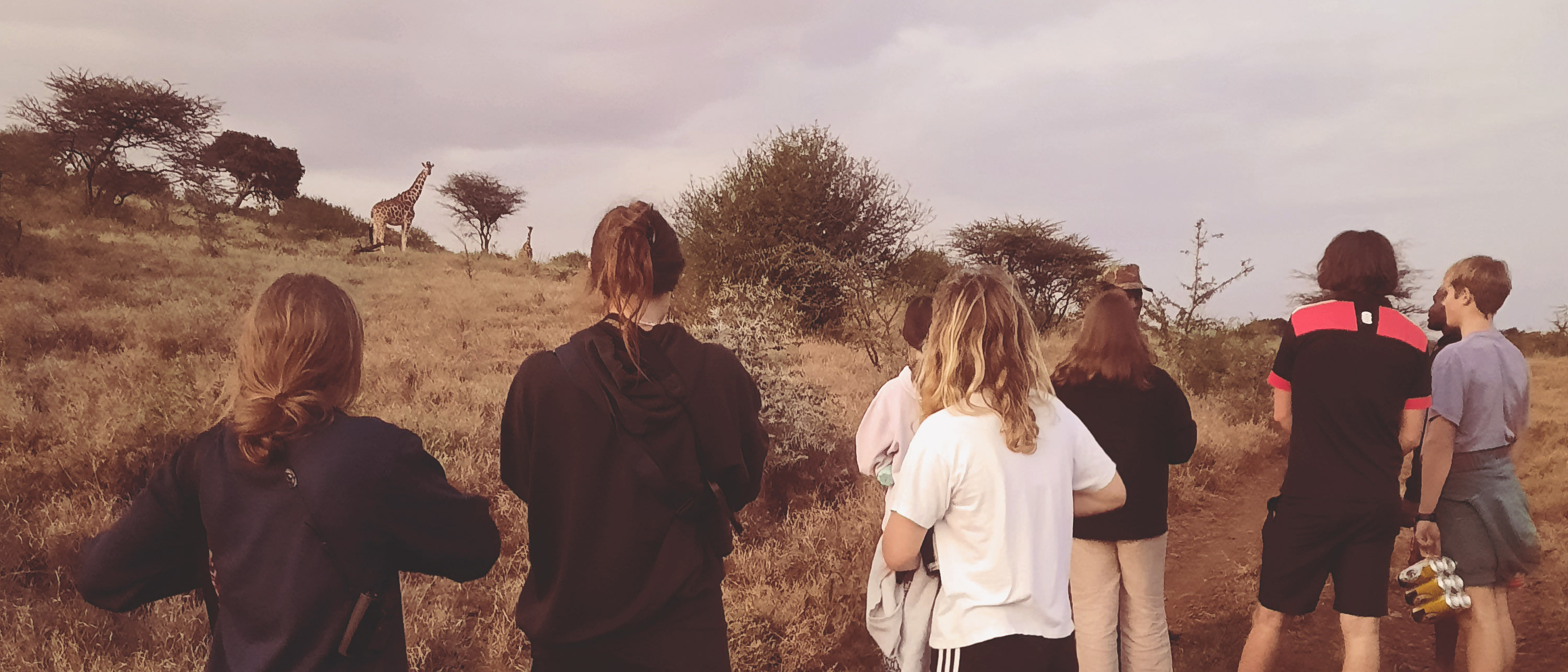Borana is one of the many places that students get to know well in their 8 week Kenyan gap year adventure with Culsans. Borana Conservancy is committed to the conservation of critical habitat and wildlife . Steeped in history, there are a lot of stories I could tell you about Borana, but a recent one that stands out well is from our 2021 gap travel adventure. The story where Callum jumped over a warthog.
*Yes, you read that right.*
Let’s take a look at what Borana Conservancy is, and what happened on that memorable day…
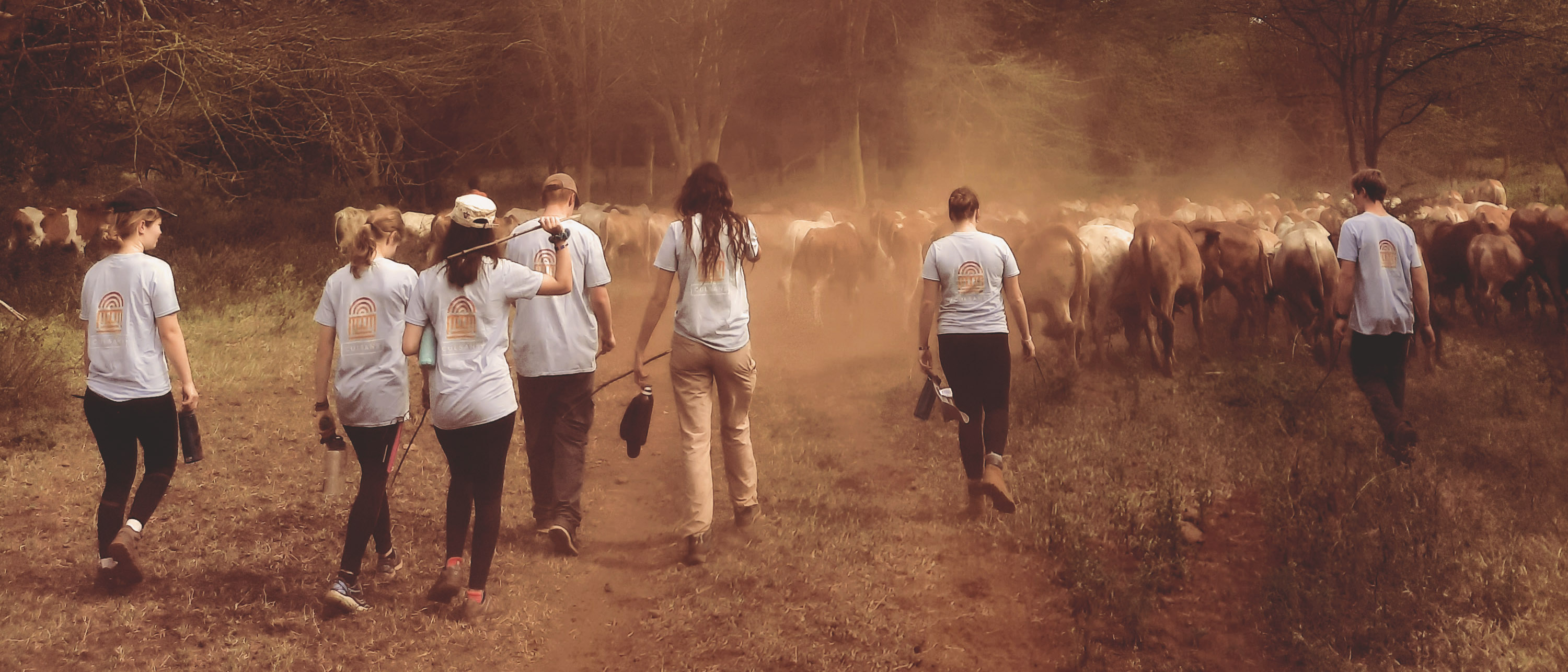
What is Borana Conservancy?
Borana was established just after the war in 1918 in a time where Kenya was called ‘British East Africa’. A guy called Will Powys sold his Somerset farm and applied for a ‘Soldier Settler farm’ which is where Borana Lodge now stands.
Today Borana Conservancy, located at the foot of Mount Kenya, is a non-profit organisation that holds 32,000 acres of land dedicated to sustainable conservation of wildlife. This initiative builds local livelihood whilst protecting over 200 black and white rhino and multiple other endangered species.
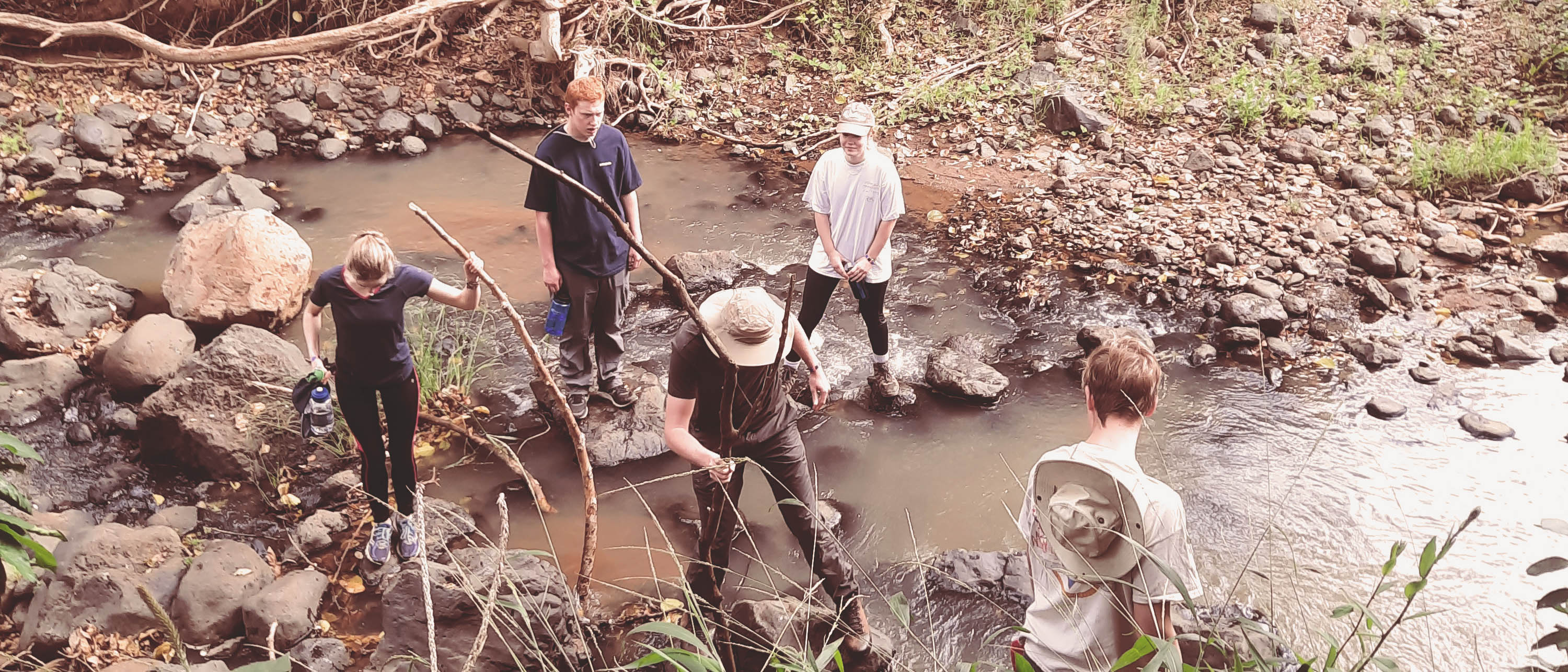
What's is like visiting Borana with Culsans?
To set the scene, Borana is a magical place – and for this particular trip it’s exactly where we started our bush adventures from. We base ourselves on a campsite, just outside the main conservancy's fencing - so safe from resident elephants, rhinos and buffaloes!! Camping under the shade of beautiful Acacia trees next to a quiet river with a team of Maasai chefs from the Il Ngwesi community, our week here went by the ‘work hard play hard’ vibe. During the day all students would venture across the river and walk up onto Waitabit farm, learning the basics of how regenerative farming works and the importance of growing your food sustainably while maintaining a ‘planet conscious’ diet (and no, it's not all about being veggie or vegan!) Everyone loved getting dirty and hands on, helping to support the daily work on the farm; from cattle dipping, pruning, mulching and weeding to morning irrigation sessions, compost making and nursery creations.
In the evenings, we would head up to our well earnt sundowner spot with our beers and sit and watch the sun set over Borana Conservancy and its beautiful wildlife. We were spoiled for sightings! One night alone we saw hyena, zebra, giraffe, ostrich and then a lone black rhino! All while sitting on one old disused water tank - binoculars in one hand, Tusker beer in another...
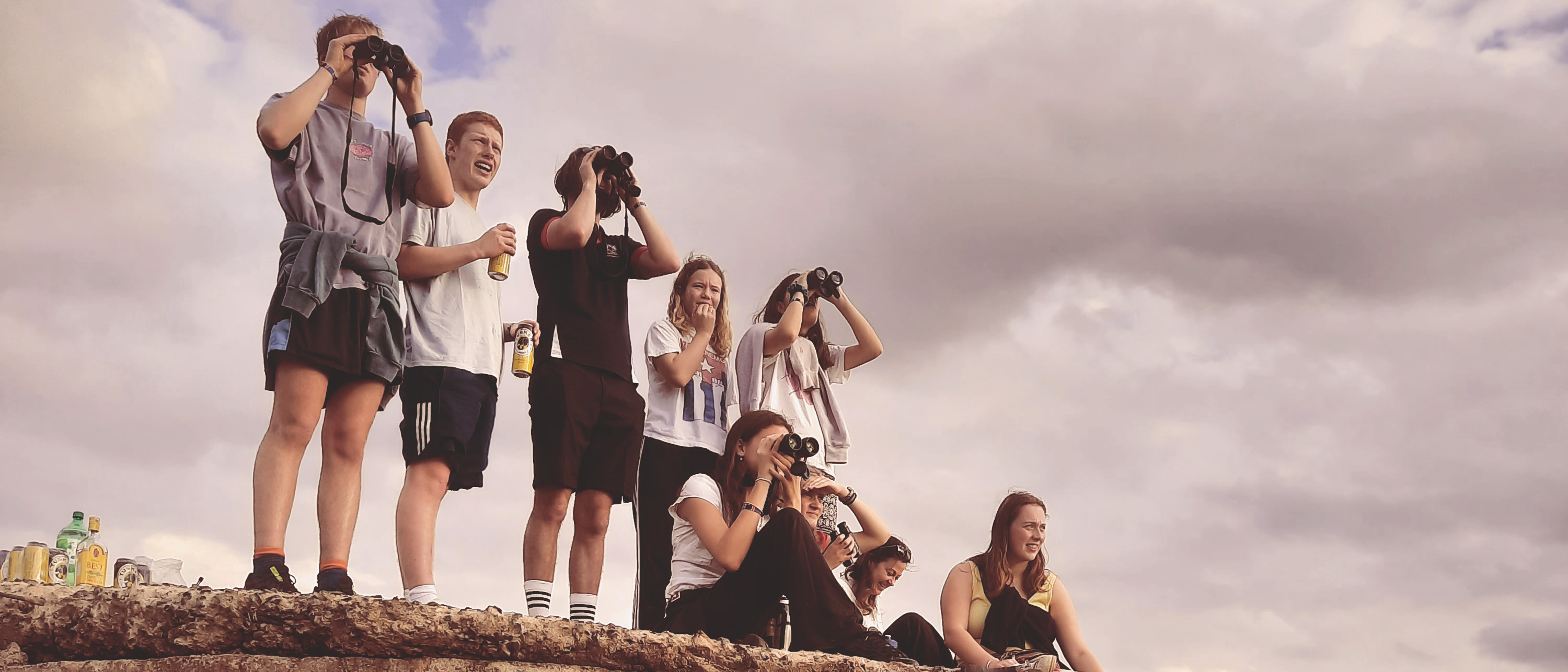
The one where Callum jumped over a warthog
On the walk back to camp one evening, chaperoned by our Maasai friends, the natural light had disappeared and we were chatting in the twilight about animal behaviours. Suddenly out of nowhere, 3 startled and rather fat warthogs jumped out from behind a low bush, and like tornadoes, ran straight through our legs! Callum, by far the tallest in the group, was used by the girls as an automatic but totally useless hiding post. In the space of a split second, they ran behind him for protection – just as he jumped vertically to avoid the charging hogs! Even our highly skilled and bush trained Maasai team were briefly surprised, but they know the terrain and wildlife well and knew the situation was safe. They stood back and laughed hard at the astonished looks on all our faces. It was such a funny, pulse-raising moment, filled with the sounds of human squawks and gasps, squealing pigs, rustling bushes and galloping trotters.
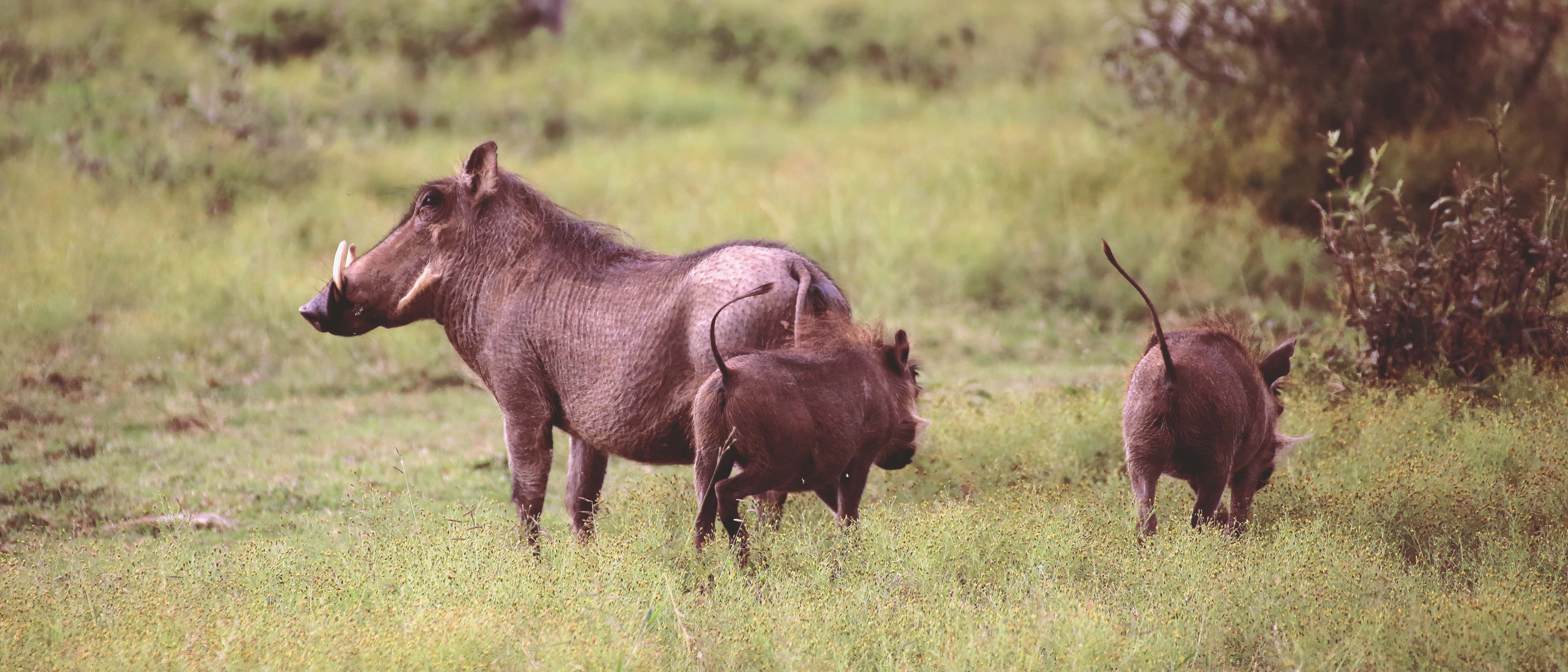
Will I get to experience wildlife conservation on my gap travel adventure with Culsans?
Conservation is just one form of adventure that you will experience on the 8 week Culsans Gap Travel program. Whilst you are unlikely to jump over a warthog, each trip is its own adventure. You will experience land, wildlife, community and marine conversation.
Conservation of land and earth at Borana Conservancy, Waitabit Farm, Laikipia
On your gap year with us you will spend one week getting hands on with regenerative farming to help show you about the importance of conserving the earth beneath our feet. Understanding where our food comes from, how it is grown and how you can maximise this without the use of chemicals and while nurturing the earth’s natural resources. We basically try and show you how to create your own organic ecosystem that, in time, is completely self-sufficient.
Wildlife Conservation at Ol Pejeta Conservancy, Laikipia
Working with local Ol Pejeta guides, we are taken behind the scenes to see how multiple projects help support endangered species. Lion tracking is a great day out where we take notes of the pride's behaviour and read their markings. This is vital if conservationists are to keep the population from reducing while also protecting other endangered species from being prey! Training the anti-poaching dogs is a great way to chat directly with ex poachers turned rangers and hear about the natural conflicts and politics involved in the illegal wildlife trade.. Cleaning the Northern White Rhino enclosure and talking about the rhino graveyard are very sobering but special opportunities. There is also cattle herding and grazing for land maintenance and income, the chimpanzee sanctuary, community projects, educational centre, tourism department - everything has its place in the wider conservation model.
Community conservation at Il Ngwesi, Laikipia
A week working alongside the Maasai, understanding their cultural viewpoints and seeing how vital ‘community’ is in a successful business conservation model. We hear the stories and relationships of how the lodge came to be, the development in the community education system and income support for families though lodge and conservancy jobs via the tourism industry. We collect wildlife data every morning and input it into the Il Ngwesi Conservancy system which gets shared with a larger landscape, helping scientists and conservations map out future progressions. We also help support the community by opening up our afternoon safari guide training talks to community trainee guides so everyone is able to learn from the professionals we bring in. We try our hand at local beading with the women and hear all about their income efforts and skill development.
Marine conservation at KCWA, on the Kenyan coast
Getting straight into a new environment, into the water and under the waves, we look at how to identify fish and collect data of rare species. Learning the science of coral and how to farm this positively and cleanly, enabling the marine protected area to grow and become a larger habitat for marine life. Performing beach clean ups and upcycling rubbish - we might even be able to witness rubbish in action with turtle nests and having to free the eggs before they get crushed. Community projects and education of fisherman and farming is also key, understanding the community benefits and how to keep communities happy and in support of the work so developments become more natural.
The 8-week Culsans Gap Year Program is for anyone that wants to meet new people, interact with new cultures, make a real impact on those that need it, and explore parts of the world that you have never seen before. Sounds exactly how you want to spend your gap year? Get in touch for a copy of our January 2022 Gap Year brochure.


